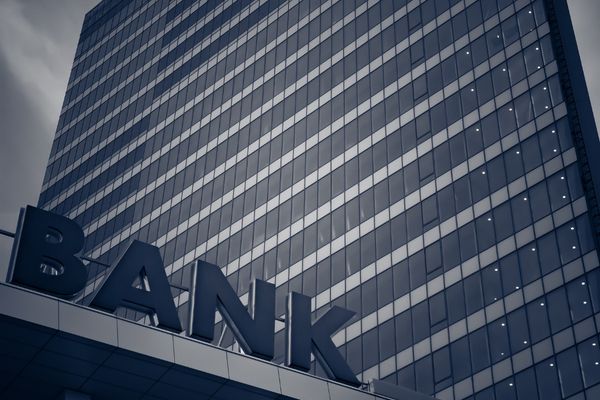Deadline: 16-Dec-22
Applications are now open for Multilateral Development Banks Challenge Fund (“the MDB Challenge Fund” or “the Fund”), a $5.25 million fund that aims to fund innovative solutions and approaches that empower multilateral development banks (MDBs) to provide more financing to developing and emerging economies.
The MDB Challenge Fund’s overall goal is to accelerate MDB financing for the United Nations’ Sustainable Development Goals (SDGs) and the Paris Climate Agreement, in line with the recommendations included in the G20 Independent Review of MDBs’ Capital Adequacy Frameworks report released in July 2022.
The Fund will advance the overall goal through support to work that will enhance or build constructive relationships with MDB management and program teams, generate learnings and insights related to increasing MDB capacity, provide external independent support on technical aspects of the G20 report, and maintain momentum to pursue the G20 report’s agenda. Consultants, organizations, and MDBs may submit proposals to the Fund that aim to leverage the findings from the G20 report to benefit the Global South.
Funding Information
- The MDB Challenge Fund, with a current size of $5.25 million, anticipates awarding 8–18 grants that each last 12–18 months. The maximum grant award will be $1 million; however, the Fund anticipates issuing most grants with proposed budgets up to $500,000. The Fund will consider a limited number of exceptional projects with proposed budgets above $500,000 and up to $1 million. The Fund reserves the right to modify the total amount requested for final approval.
What the Fund Will Support
- The Fund welcomes a variety of proposals, all of which should:
- Promote initiatives to increase MDB lending capacity in line with the G20 report recommendations.
- Help build public knowledge by generating publicly shareable statistics and/or insights. While grantees are not required to release their work in the public domain, they are expected to share the knowledge gained from their project within the MDB and/or shareholder communities. If there are specific reasons why a grantee cannot share their work within those communities, such circumstances will be reviewed on a case-by-case basis. Please note that non-charitable grantees cannot limit sharing or use of knowledge gained from projects for their private benefit.
- Leverage the insights from the G20 report to build momentum for reforms and innovations in MDB resource management.
- Projects may focus on areas of work such as:
- Technical assistance to address potential barriers to leveraging shareholders’ capital contributions and maximizing financing, as determined by MDBs’ capital adequacy frameworks.
- Operational funding to finance pilot programs or parts of programs to implement the G20 report’s recommendations and/or demonstrate how to implement MDB reforms on a larger scale.
- New and in-depth analysis to build on the G20 recommendations.
- Sample proposals could include, but are not limited to:
- Developing evidence or supporting analysis demonstrating how MDBs could adjust capital adequacy frameworks to expand lending in a prudent and sustainable manner or how CRAs could more accurately assess and reflect MDB risk in their methodologies.
- New and innovative initiatives designed to support environmental sustainability through finance (including sustainable investments, ESG advocacy, green bonds, etc.).
- Designing or testing innovative financial strategies (including securitization proposals, hybrid capital, etc.).
- Conducting feasibility studies and preparatory work supporting one or more of the G20 report recommendations.
- Facilitating greater transparency or exchange of information that could meaningfully contribute to more efficient MDB resource management.
- Providing targeted education and governance support related to MDB capital adequacy.
Criteria
- The Fund will support both MDBs and non-MDB entities with relevant expertise. For non-MDB applicants, the Fund will prioritize applicants that have the explicit support of an MDB and/or existing relationship(s) with MDBs. Eligible organizations include, but are not limited to:
- MDBs
- Consultants or researchers with expertise in MDB capital adequacy management
- Financial service providers that would like to use innovative financial vehicles to partner with MDBs
- Both charitable and non-charitable organizations are eligible to apply for Fund support, though the proposed projects themselves must have a charitable focus. Charitable organizations must have and show proof of 501(c)(3) charitable status or its equivalent. Non-charitable organizations must show proof of tax status and describe the charitable purpose and outcomes of their projects. Please see the Application Requirements for more details about both organization types, including a list of accepted charitability documents for US and international entities.
- Joint applications from multiple organizations are welcome; please see the Application Requirements section for more details about required information for joint applications. Additionally, organizations may submit more than one proposal, should they have multiple ideas for relevant projects. Please note that OFAC-sanctioned organizations are not eligible for funding.
Requirements
- Charitable Organizations
- Proof of Charitable Status
- For US-based entities
- Most recent Form 990F
- For entities not based in the US
- 501(c)(3) Equivalency Determination letter dated within the last two years
Please note that entities that do not have an Equivalency Determination will not be considered charitable entities for the purposes of this RFP and will undergo the same restrictions as non-charitable entities
Ineligible
- Ineligible project types include:
- Projects that support business-as-usual activities.
- Advocacy or education activities aimed at the general public.
- Projects carried out by non-charitable grantees using grant funds to create intellectual property that the grantee will own and possibly use for non-charitable activities (unless certain criteria are met).
For more information, visit MDBs.


